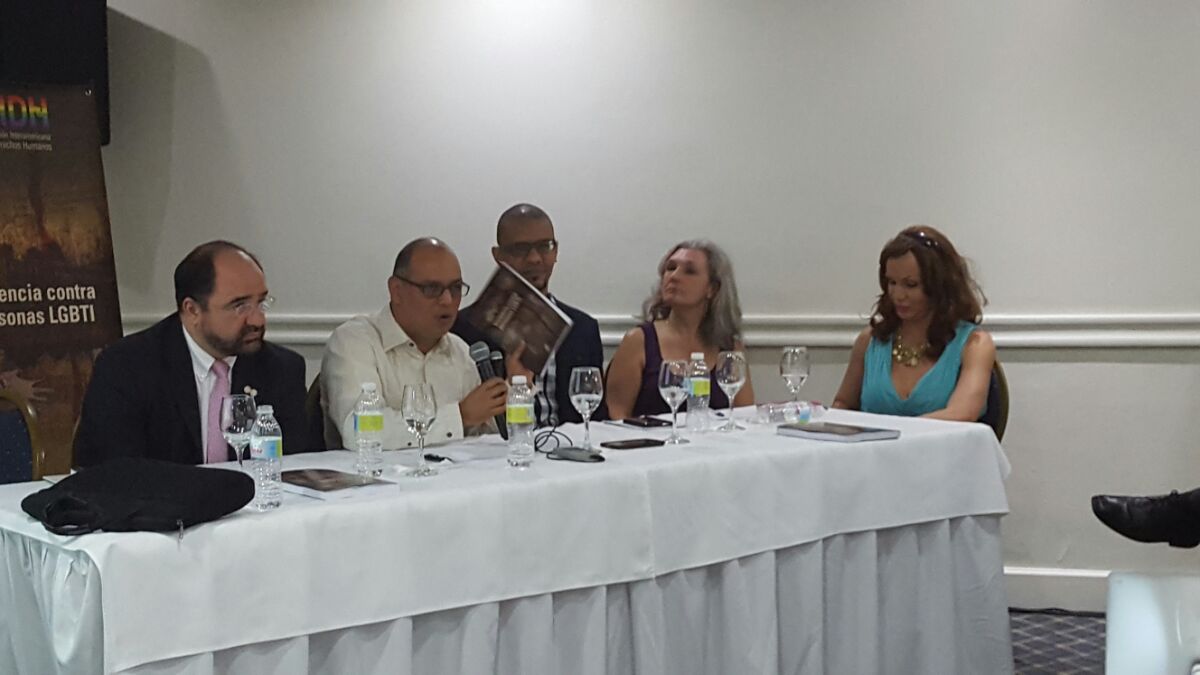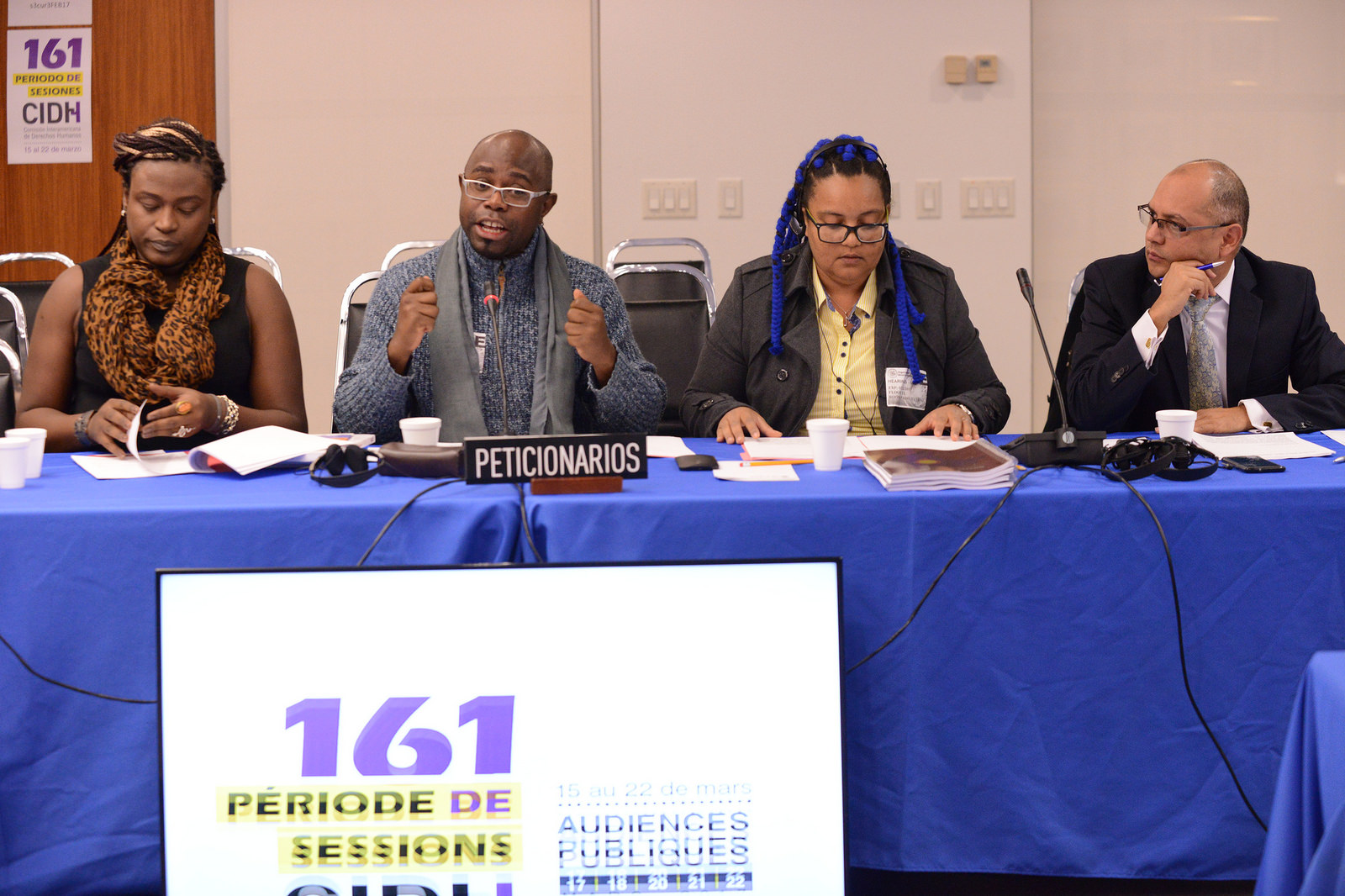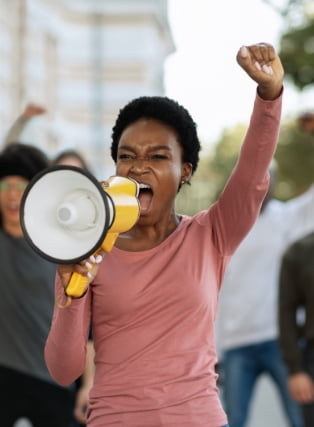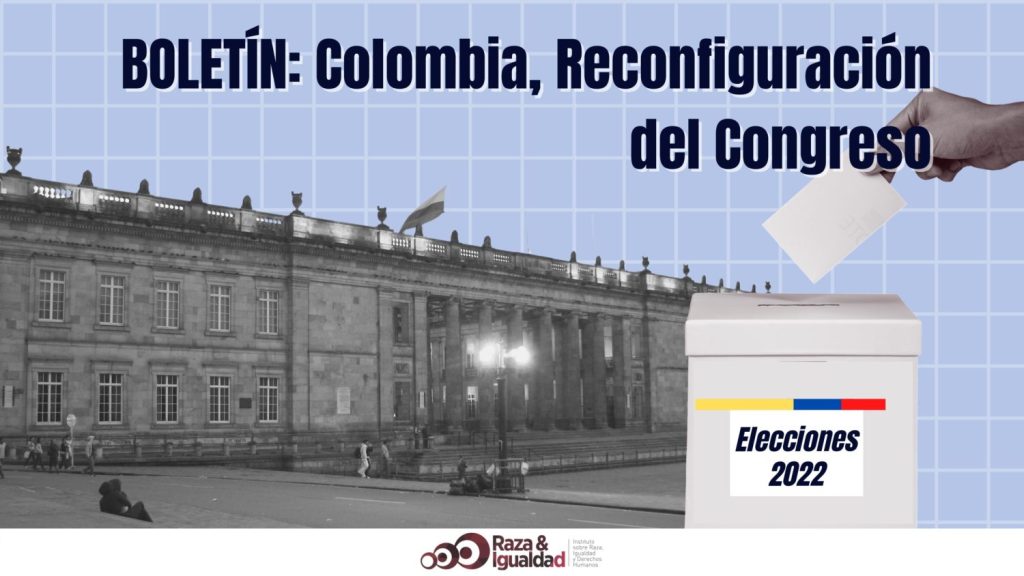“We lesbian, bisexual, and trans women are not only killed for being women, but also for having chosen to be women.” – Laura Weinstein
“There is no single way of being a woman; there are numerous ways.”
International Women’s Day represents an opportunity to continue defending the fight for recognition of women’s rights. It is, however, also a space for calling on the Colombian society and State to recognize the diversity and multiplicity of the women who make up the social construct. Race & Equality spoke with Laura Weinstein, a defender of the rights of trans persons in Colombia and Director of the Fundación Grupo de Apoyo a Personas Trans [Support Group Foundation for Trans Persons] (GAAT), who declares that in order to make progress in building an inclusive, equitable, democratic, and peaceful society, those diverse women who have to date been ‘invisibilized’ and doubly violated must be recognized.
What is the state of the rights of lesbian, bisexual, and trans women in Colombia?
Although we have made important strides in the area of women’s rights, including Colombia’s diverse women, I believe it is not enough, especially because great progress is still needed in recognizing the existence of lesbian, bisexual, and trans women (LBT), not only because society still does not understand the experience of LBT women’s lives and identity, but also because it would appear that the rights we fight for are different from the rest of society, of persons who have access to various rights, and it’s not like that, which is exactly what places us in a different fighting spot.
I would say that the first thing we need to do is to make our society understand that we are not demanding different rights than those that exist which all of us should enjoy; we are not talking about a different type of rights, but rather, the same rights that precisely because of our sexual identity or orientation are denied us or in the majority of cases delimited. [An example is] the case of trans women accessing their identity, the complications in receiving medical attention to ensure we are not violated, work, education, and many other social participation spaces that delimit us. In the case of lesbian and bisexual women, there is even less understanding regarding their rights because the idea that these women are “confused” has held sway socially and that “sooner or later” it will be resolved – a situation that not only violates these women’s freedom, but also makes them utterly invisible. In addition – and this must be said – trans women’s being women is questioned, that’s why they put us on a different level, as there are difficulties related to being women, but these women have other particularities and other needs, as it puts you in spaces that are a lot more complex.
The lack of recognition of the actual effects on women of diverse sexual and gender identities by the women’s movement throughout the region is still very obvious. Can drawing attention to the importance of treating these effects experienced by LBTI women in a differentiated manner as a part of the struggle for and defense of women’s rights be considered discriminatory or exclusionary, or do you believe it is necessary to address it in a differentiated manner?
I do indeed believe it is important to speak about them, speak about their effects and the way in which their rights should be guaranteed, because what is not named doesn’t exist. And so, by not making them visible we are simply hiding a reality that needs to be counted. We are additionally saying that nothing’s going on, that all of us are in the same situation, in the same place, and it’s not like that. A cisgender heterosexual woman, for example, is killed for being a woman, a truly grave thing; but in the case of lesbian women or trans women, not only do they kill us for being women, but also for having decided to be women. Becoming women puts us in a different place from that construction of being a woman, because let’s not forget that being a woman is not something you are born with but rather, is a construction based on the relationship of the other (males and females) that configures you, yourself. Thus, I feel it is important to speak and talk about the needs that exist – in this case, of LBT women – though recognizing that in and of itself, deciding to be a woman already puts you in a different place than what is societally entailed by being a man or woman.
What are the principal violations committed against LBT women in Colombia?
GAAT’s work is concentrated on the trans population, though we must understand that we have a direct relationship of struggle with lesbian and bisexual women. For example, in the latter case, the impacts are completely invisible because socially those women are unrecognized, it is as if they don’t exist; they are women who are commonly considered “confused” or “indecisive” and this clearly leads those women to question who they are, as if something were wrong with them, and, well, it shouldn’t be like that. In the case of lesbian women, [what occurs are] systematic corrective violations of “what you need is a man” so that there will supposedly be a “rectification” of their sexual orientation and they can thus come to see what they are missing in their lives.
In the case of transsexual women, there is also the idea related to the negation of the privilege with which they are born, because of this, but when a person says “it’s just that this isn’t me,” “this is not what I want to experience or go through,” she has a death that is assumed as a betrayal, and the betrayal is paid for through the loss of life, but it’s not just that they kill you, but also the loss of access to all of the rights that any other person could have. That’s the type of violence we experience and feel; but surely there are many other things, for example, the subjugation of trans women within the framework of the war, in that they are utilized as weapons of war and sexual weapons. That is, they look like women and as such are showy, though they also have the strength of men and that is taken advantage of for the war.
What do GAAT and Laura Weinstein call on the Colombian State and society in general to do regarding the recognition of LBT women’s rights?
The call is to recognize the identities and great variety of we women who exist, and not only limit it to gender orientations and identities but rather, ensure that there is no single way of being female, that there be a multiplicity of ways of defining ourselves as women: Afro women, campesina women, [and] women who are heads of households are examples of this. So I believe that it’s important that the Colombian society and State recognize the very important role played by these diverse women in this country’s progress, which the State has oftentimes ‘invisibilized.’
The same thing goes for society as well – it must truly provide space for women because women are the ones who have leant so much strength to this country and have demonstrated that we exist here and that we can live here, and that the role women play has been fundamental.
What strategies or mechanisms should the Colombian State or society put in place to recognize the rights of lesbian, bisexual, and trans women?
It’s important to recognize their existence, that’s where everything starts, recognizing that the Other exists, that the Other has a place in society, that regardless of who it is or how the person is, he/she deserves life. I think that’s where we need to start. We need to launch campaigns recognizing the existence of other identities, other ways of being, not like others describe them – as being “other women” – thereby implying that these women are “normal,” while those other women are “different.” No – rather, we should be able to find the multiplicity of what it means to be a woman, because we are exactly that, diverse and different.






